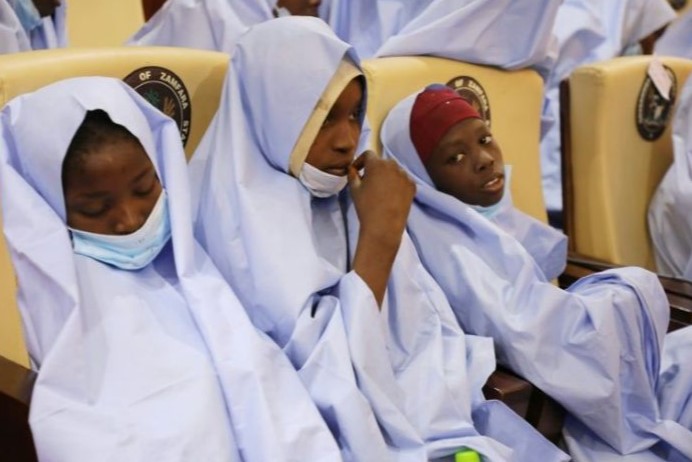Authorities in northwest Nigeria's Zamfara state have scaled back a curfew imposed on a town where hundreds of schoolgirls were abducted last month, residents said Tuesday.
The 279 girls were abducted on February 26 from the Government Secondary School in Jangebe by gunmen who are known locally as bandits.
They were released five days later, in the latest mass kidnapping to target schools in Nigeria.
But a round-the-clock curfew was then placed on the remote town, and its market and shops were closed, after violence marred an event to mark the girls' return to their parents.
-The curfew has been relaxed. It is now from 6:00 pm to 6:00 am- resident Bello Gidan-Ruwa told AFP by phone.
-We now go about our daily activities in the daytime undisturbed, but move indoors as soon it is 6:00 pm- he said.
Another resident, Abubakar Zaki, who is the father of two of the girls, confirmed this account.
Violence erupted last Wednesday when the girls were to be returned to their parents at a ceremony in the school's hall.
They had been in the government's custody in Gusau, the state capital, receiving medical care.
Angered by officials' insistence on a formal handover before parents could leave with their children, mobs began throwing stones at officials outside the school.
Security personnel opened fire and at least four people were shot, two of them fatally, according to residents.
-There was panic that the town would be raided to arrest young men who carried out the violence but nothing like that has happened- said resident Zaki.
-The security personnel, military and police, only patrol the town at night, using sirens to warn everyone to stay indoors- he said.
Heavily-armed criminal gangs in northwest and central Nigeria have stepped up attacks in recent years, kidnapping for ransom, raping, pillaging and killing.
Despite heavy military deployment to the regions, the attacks have persisted.

